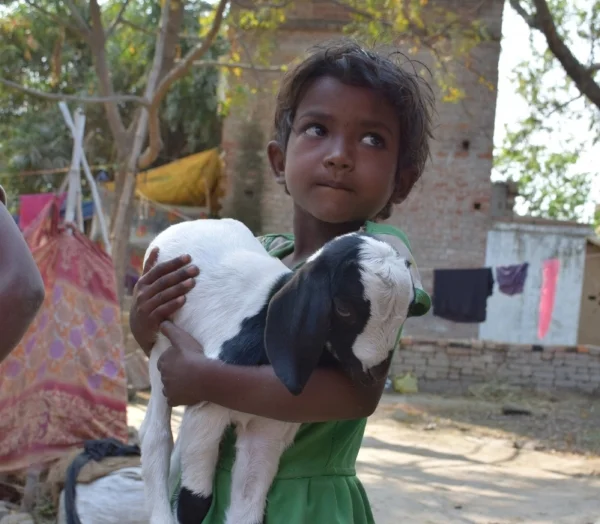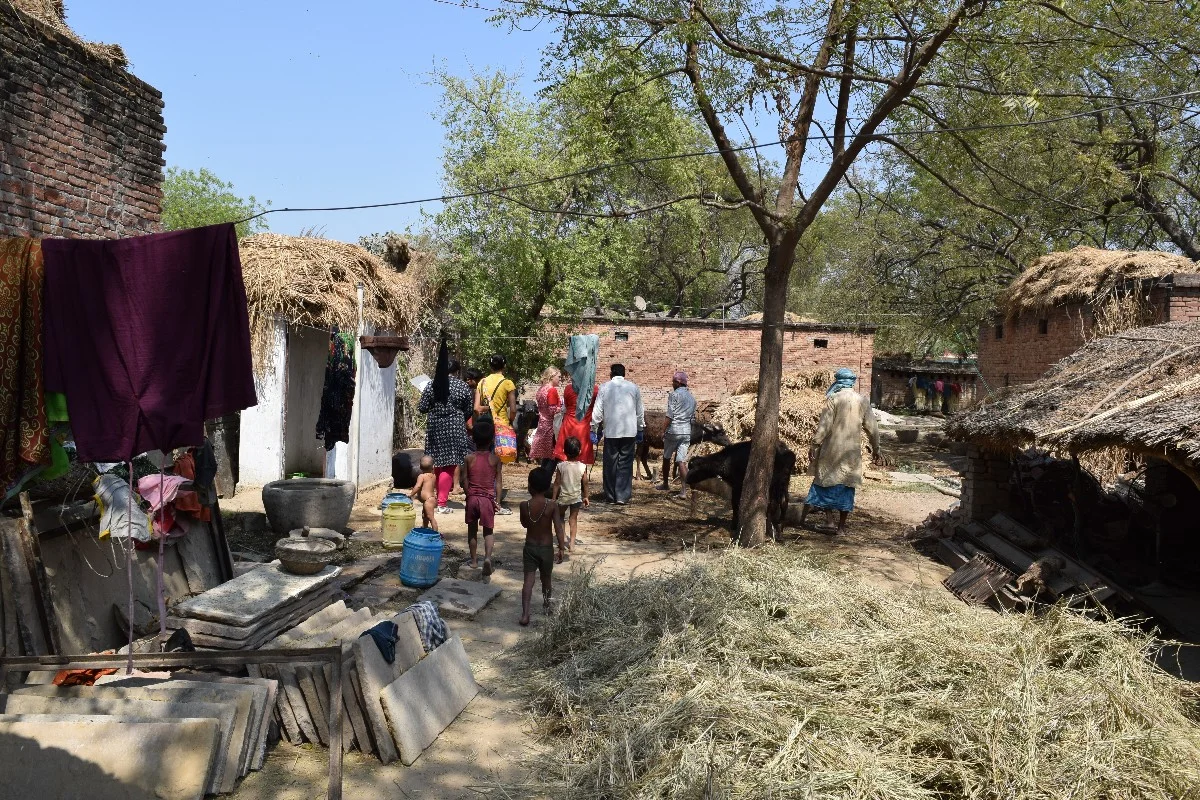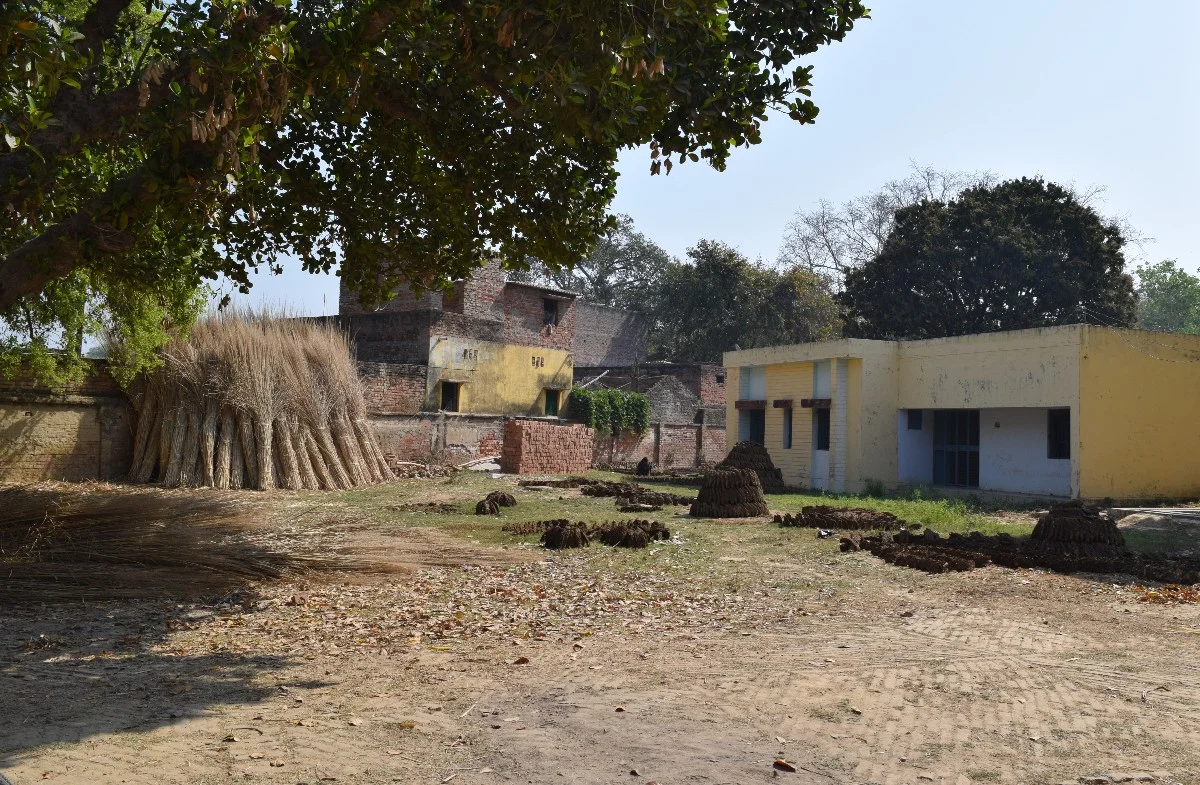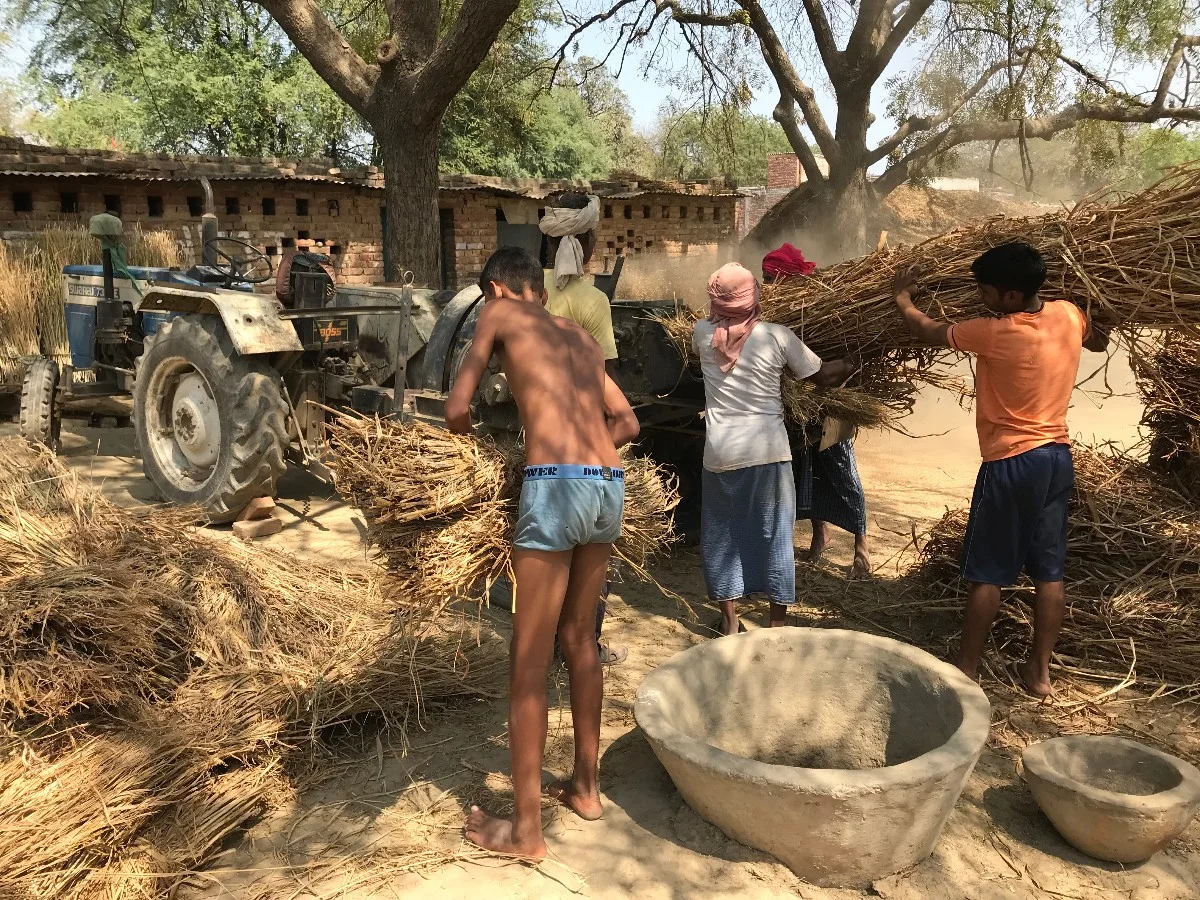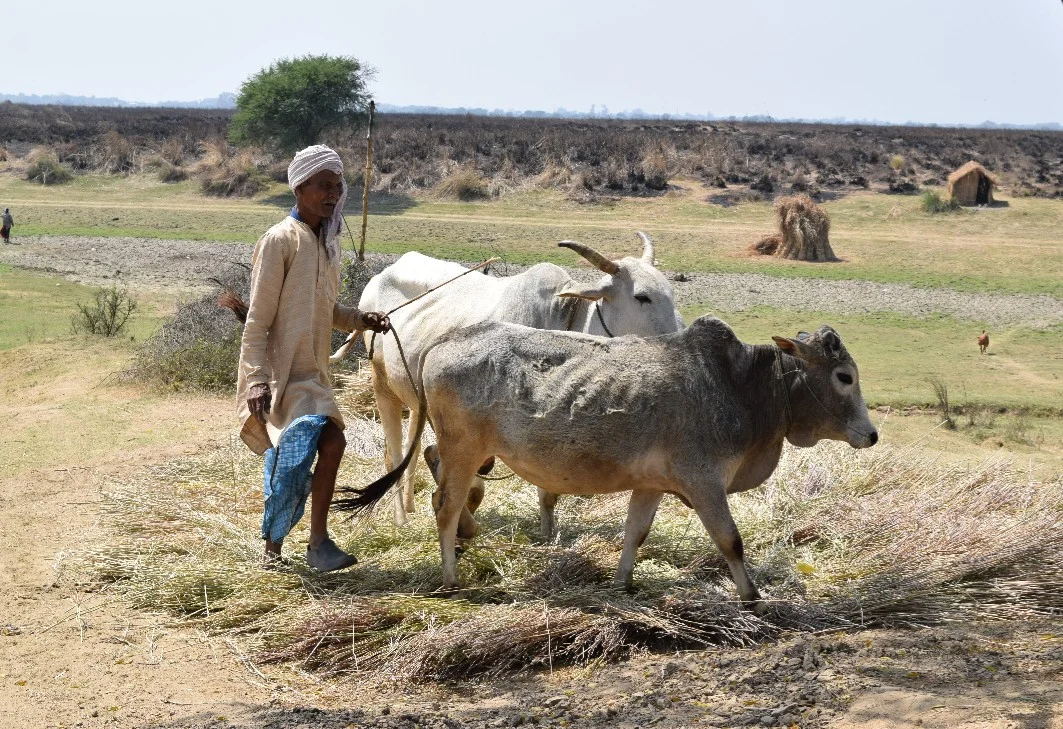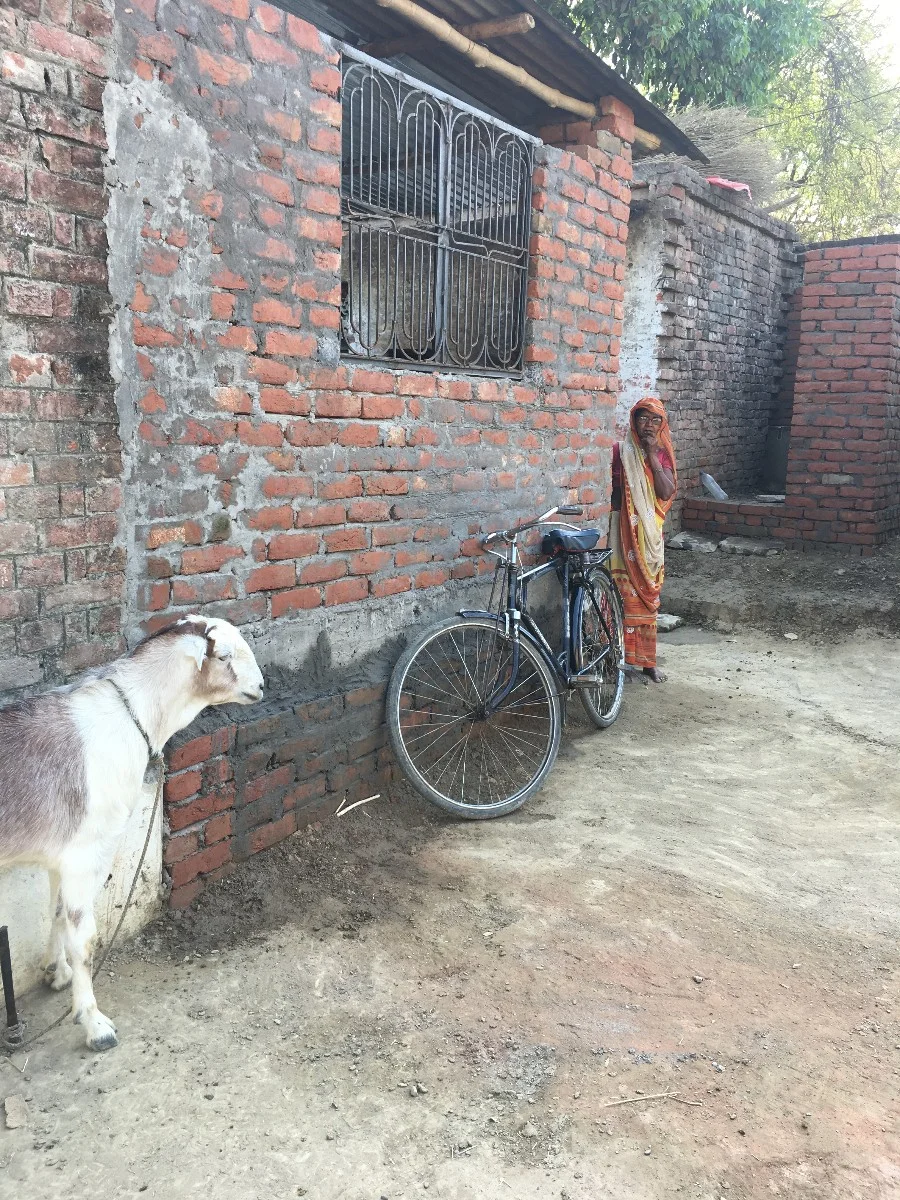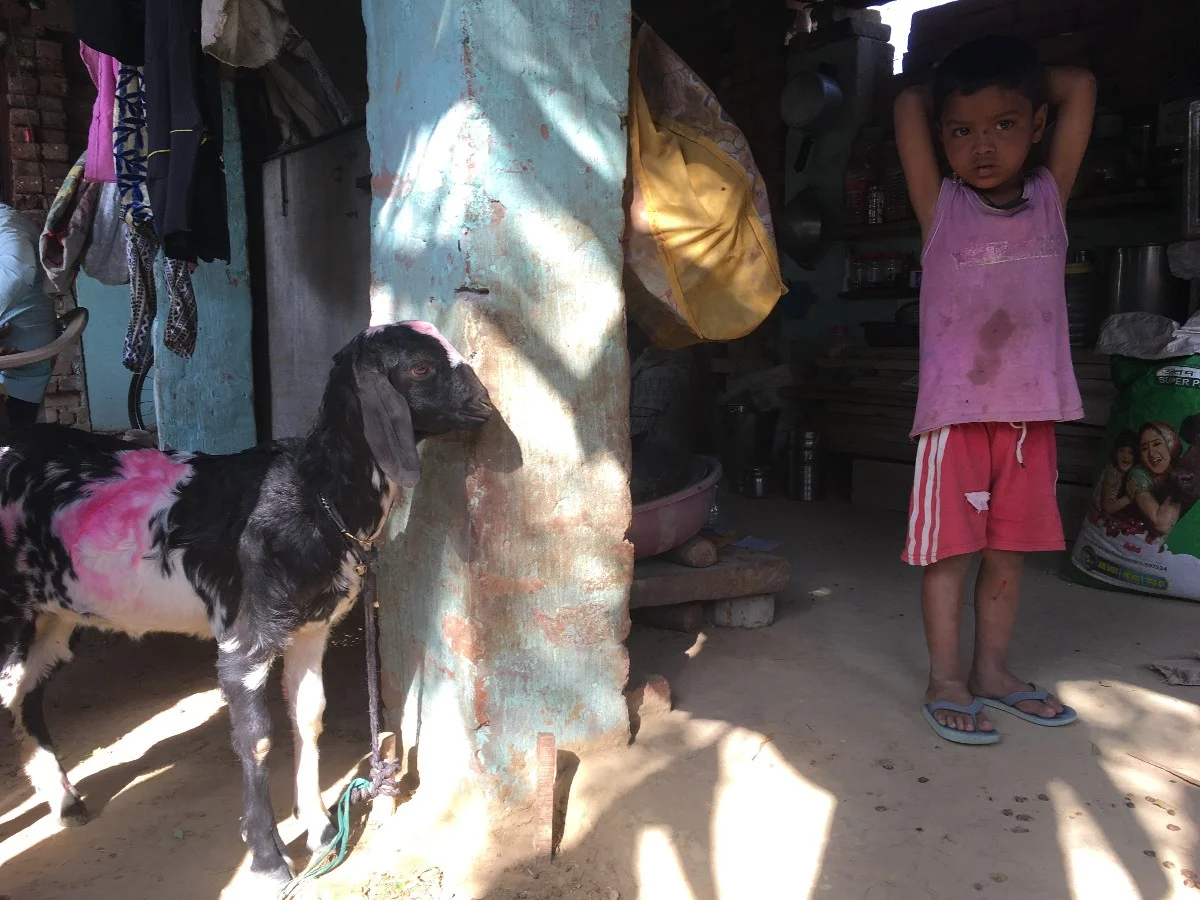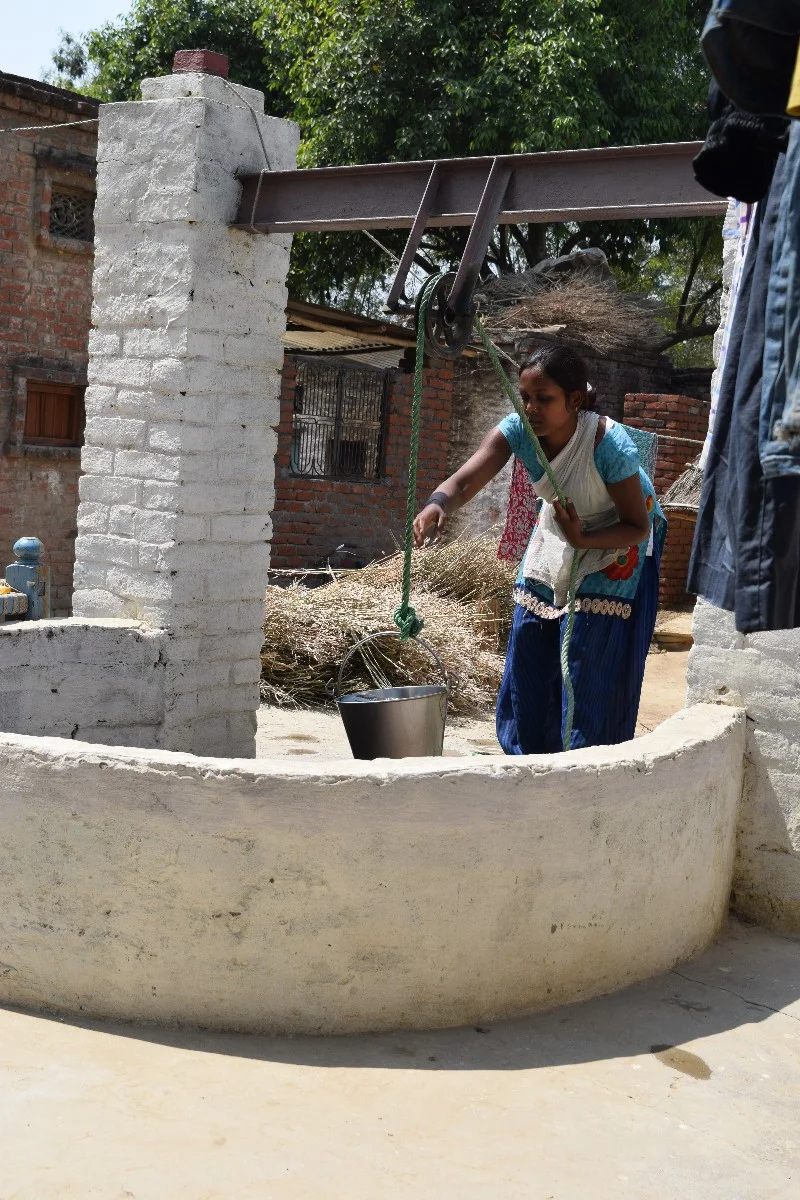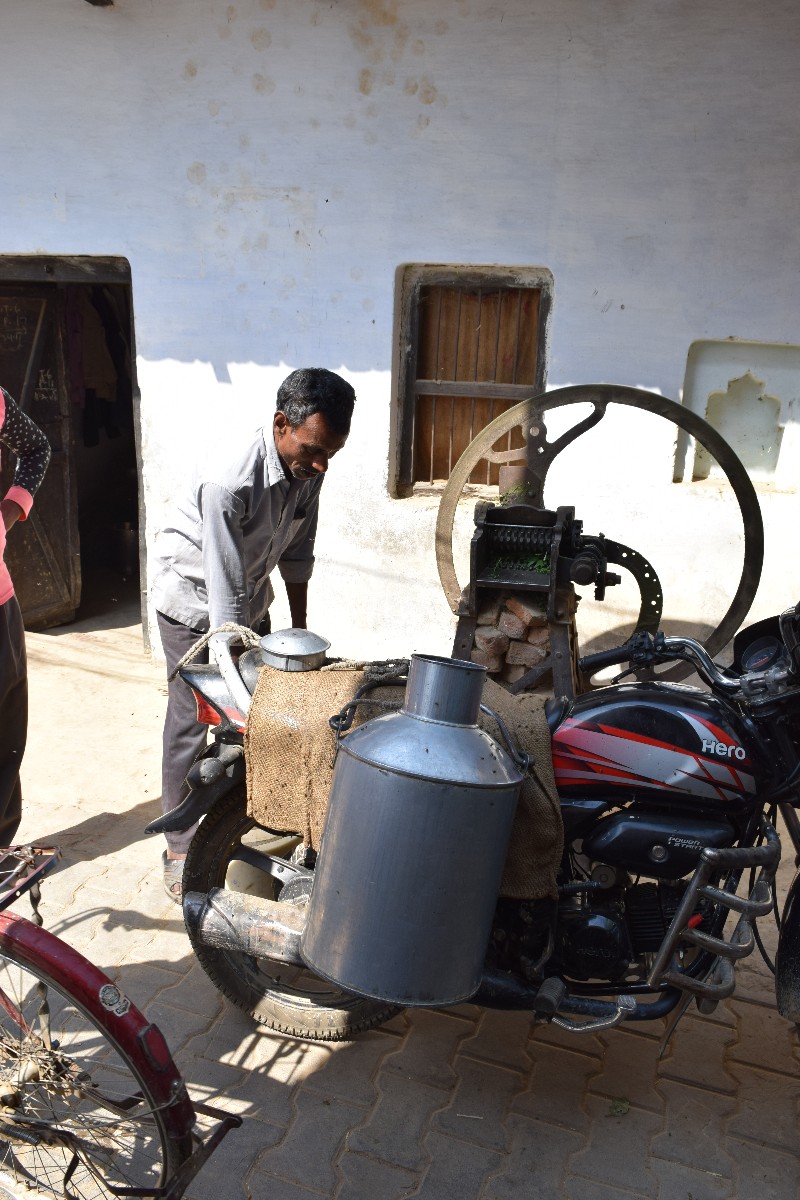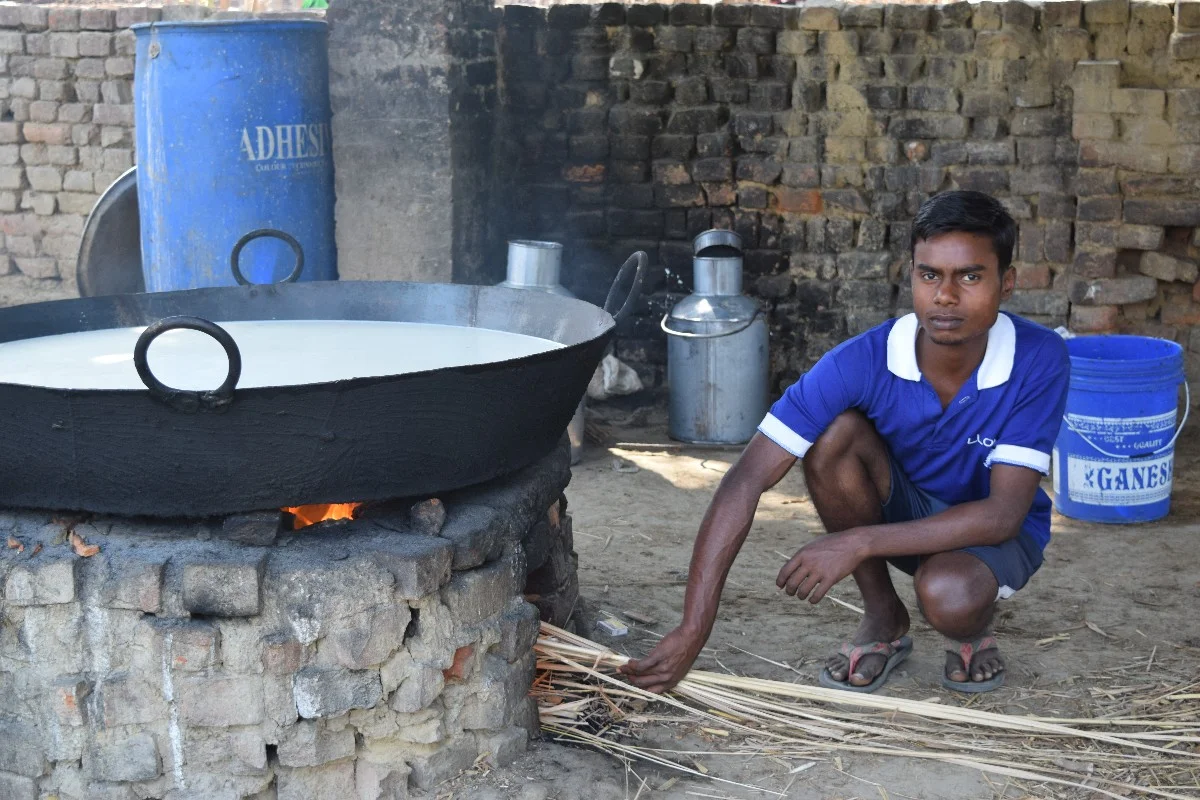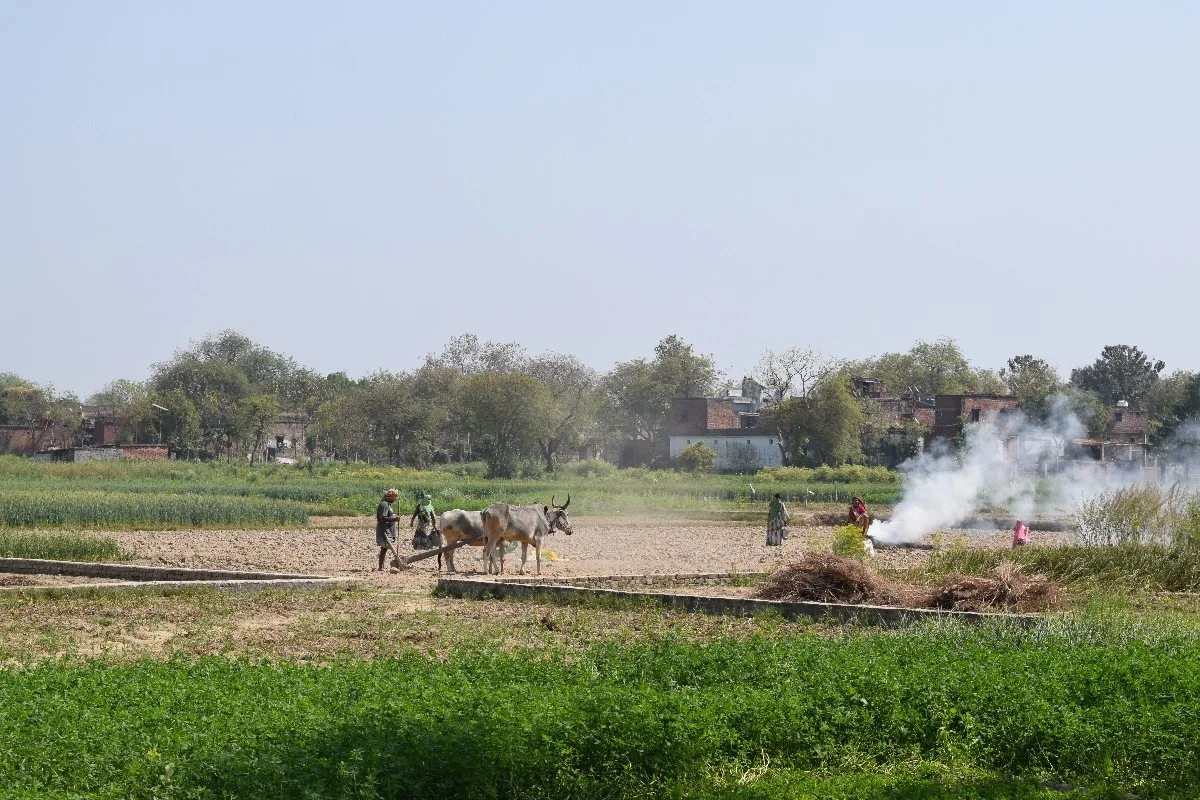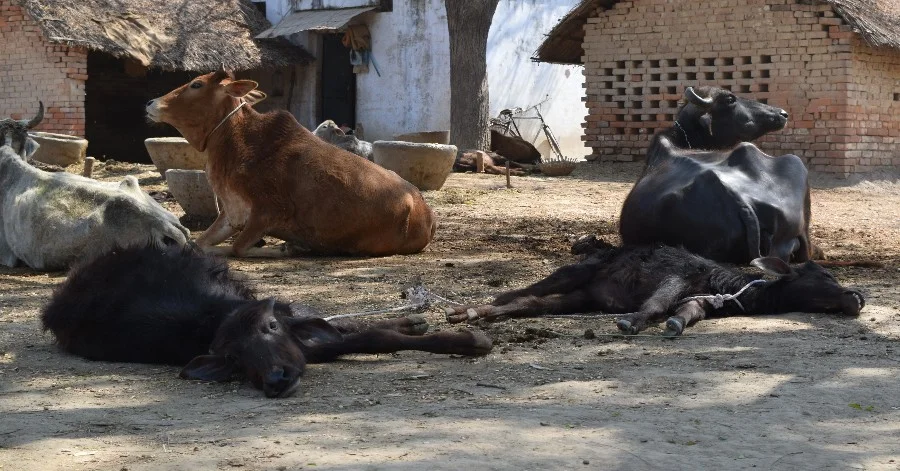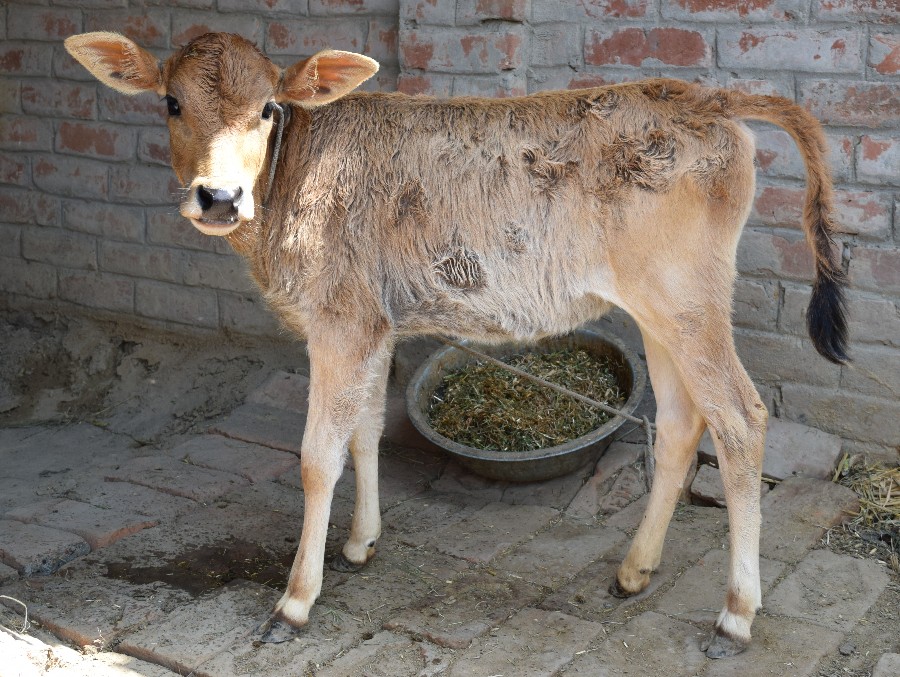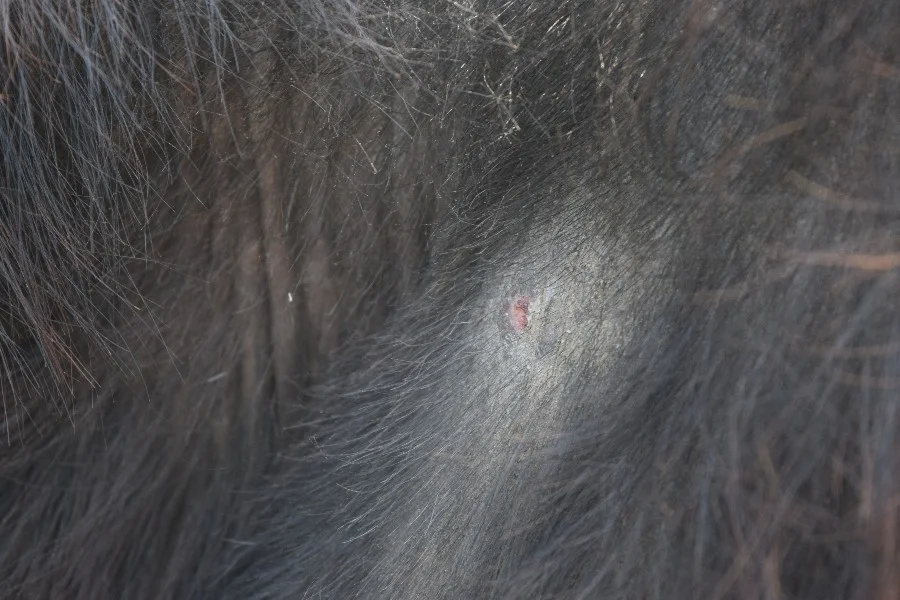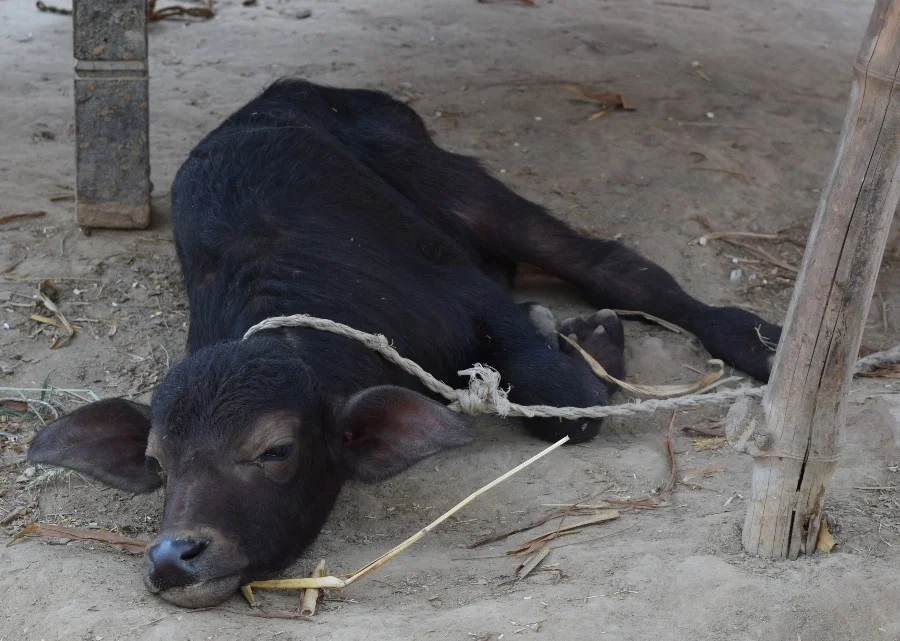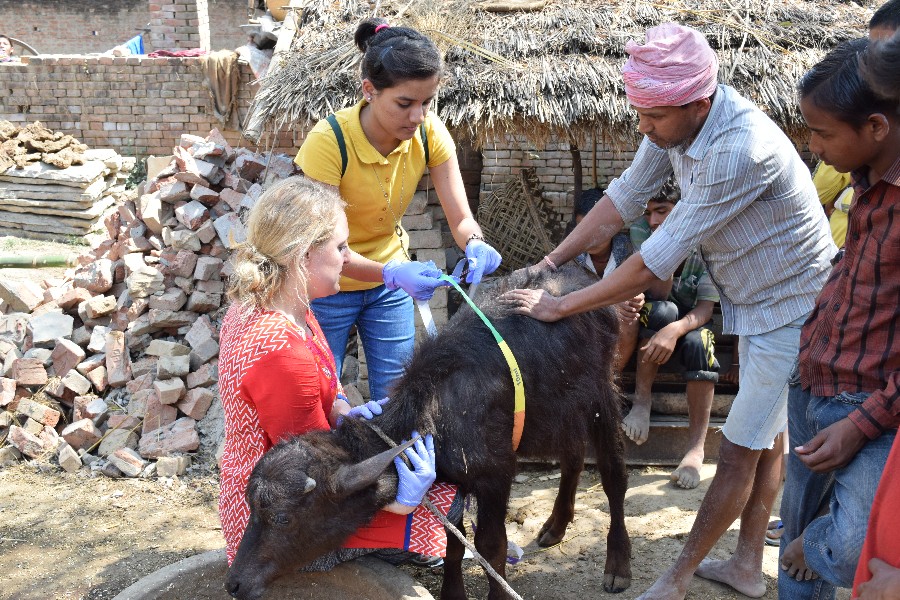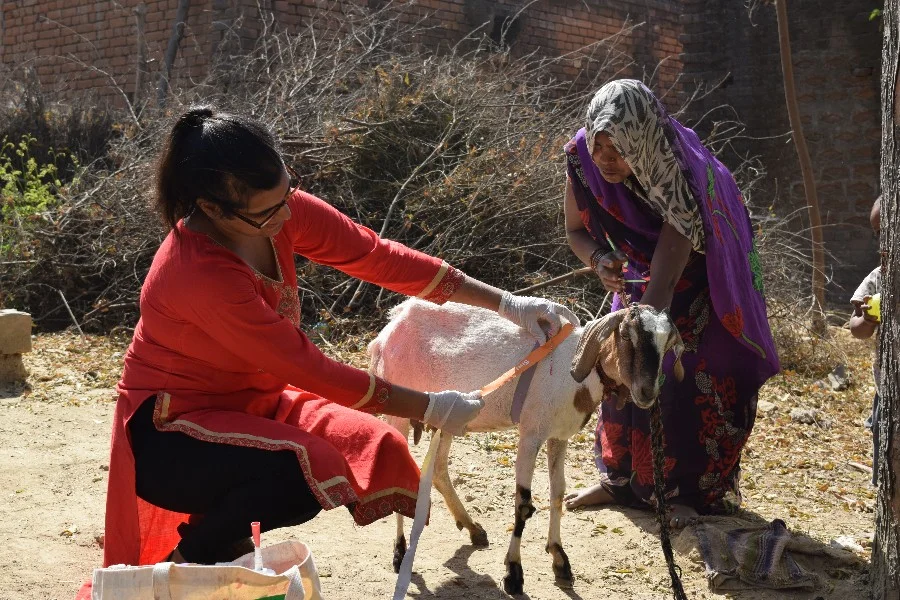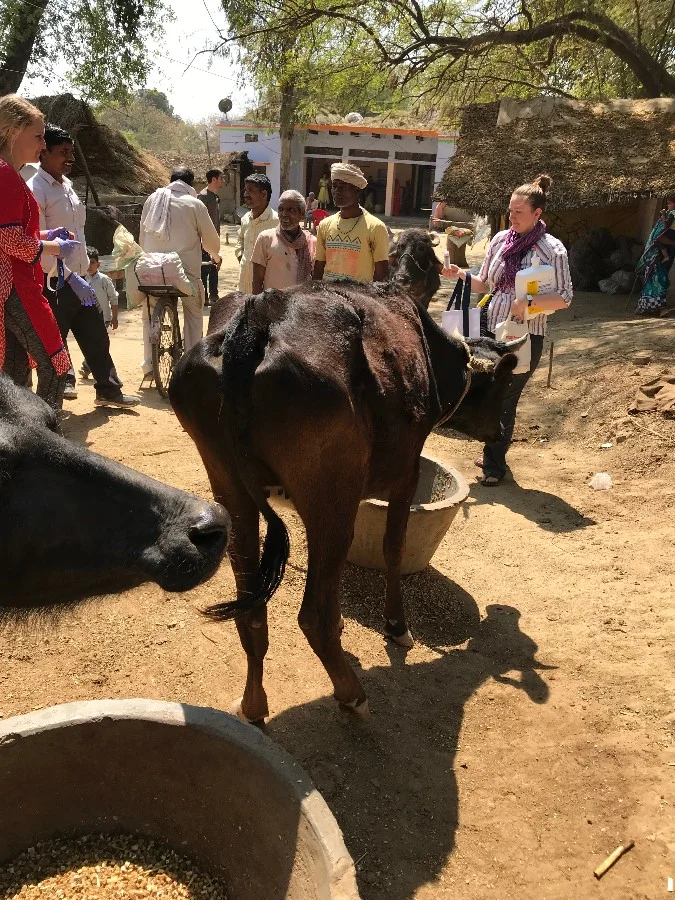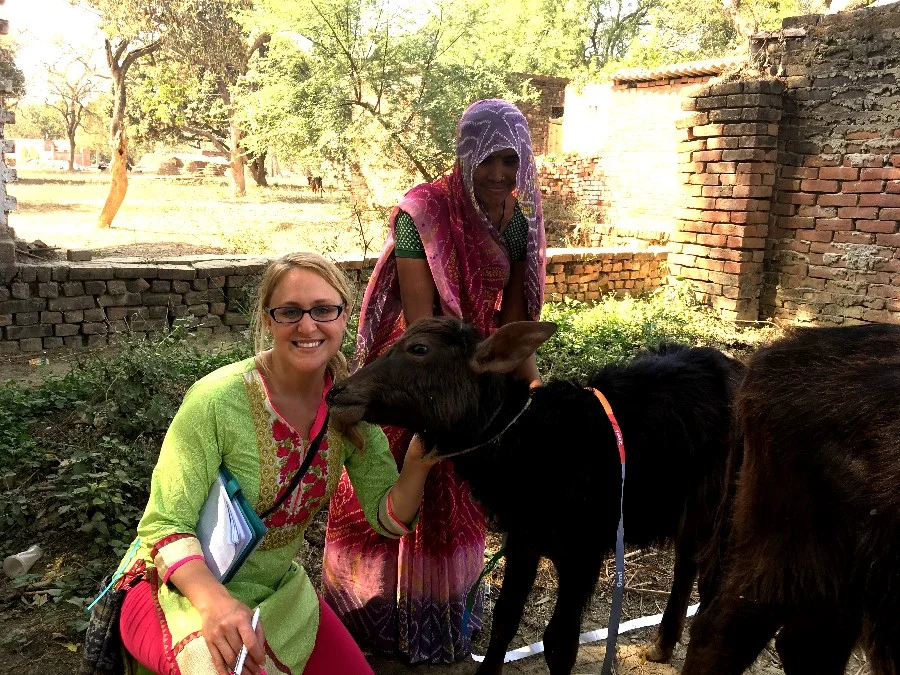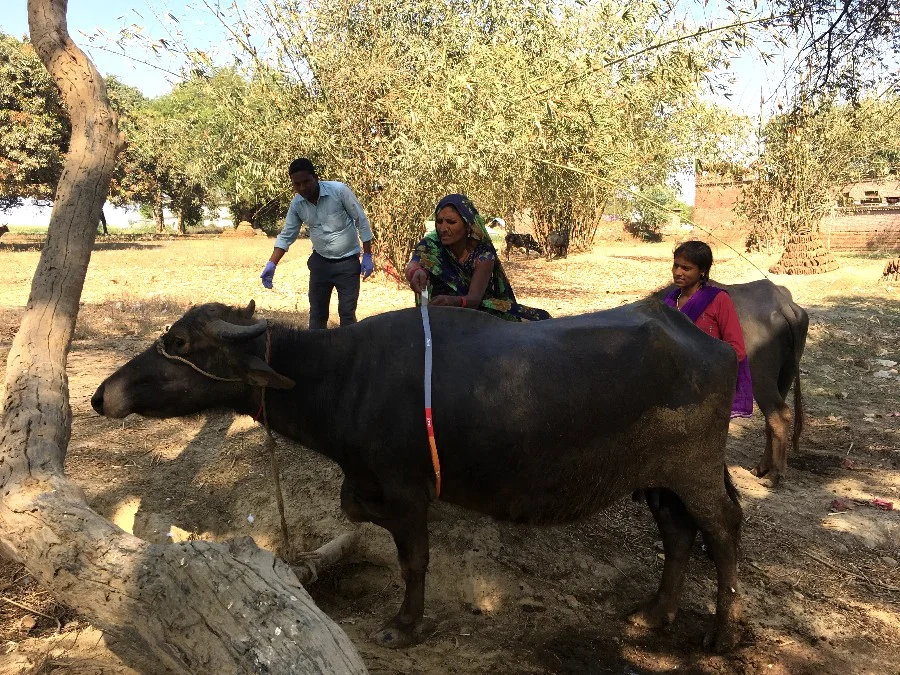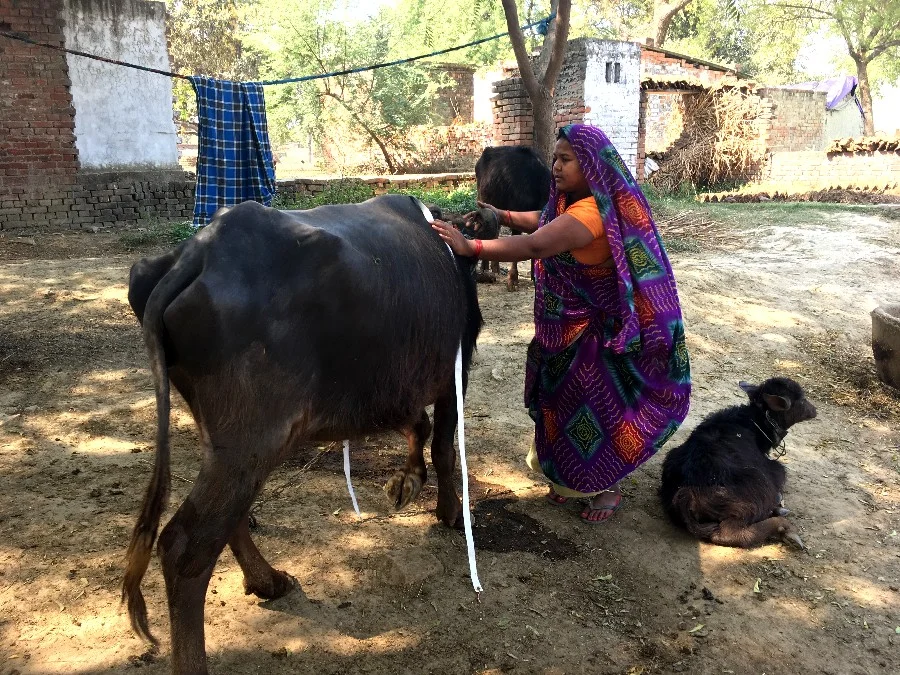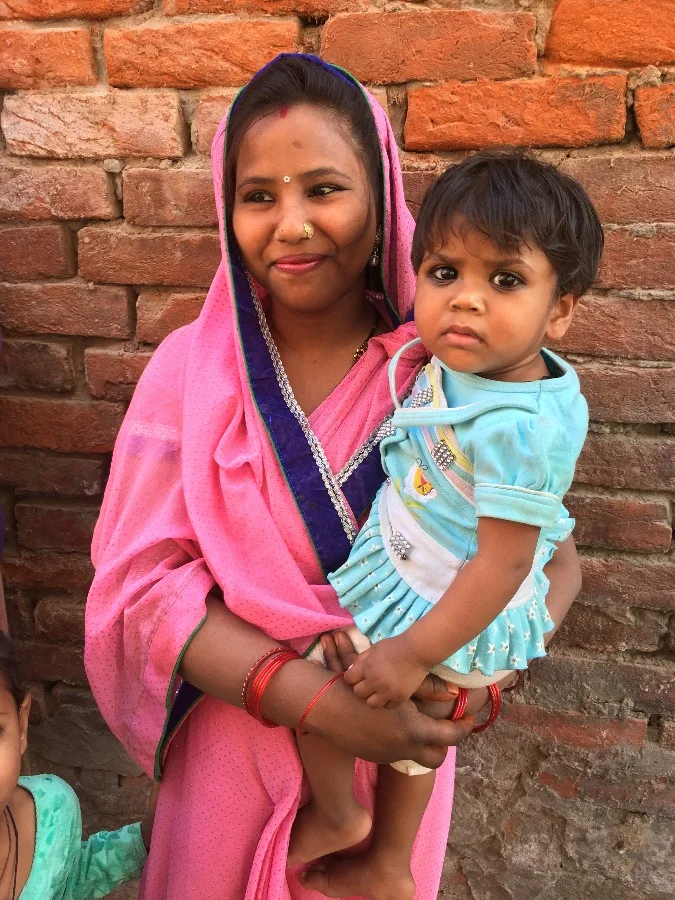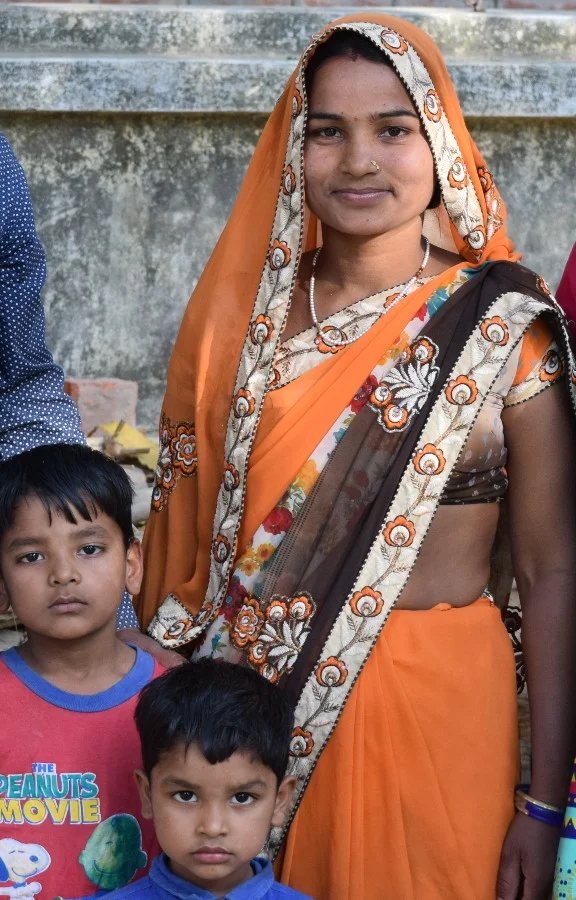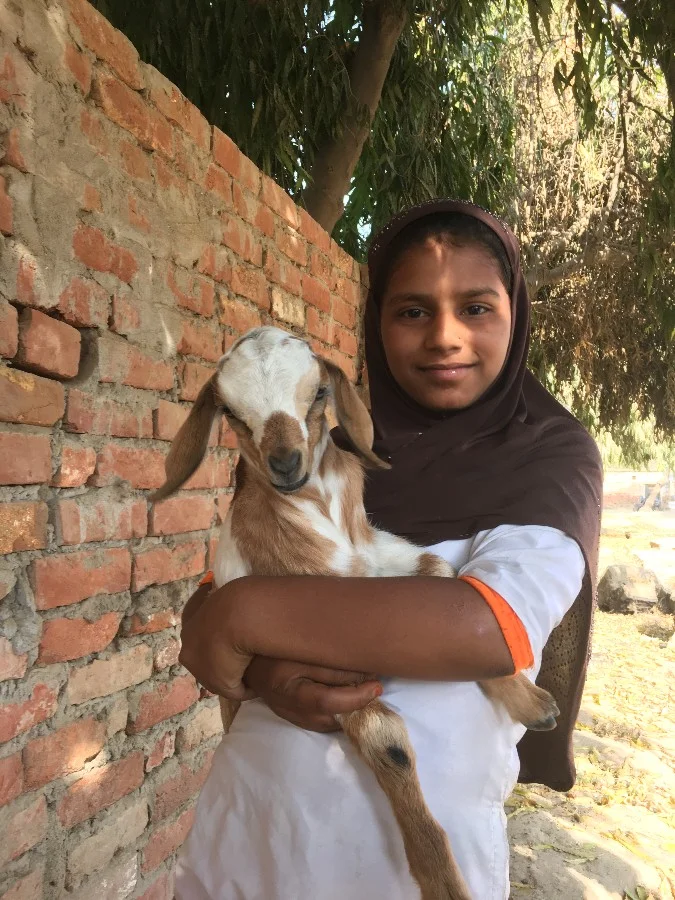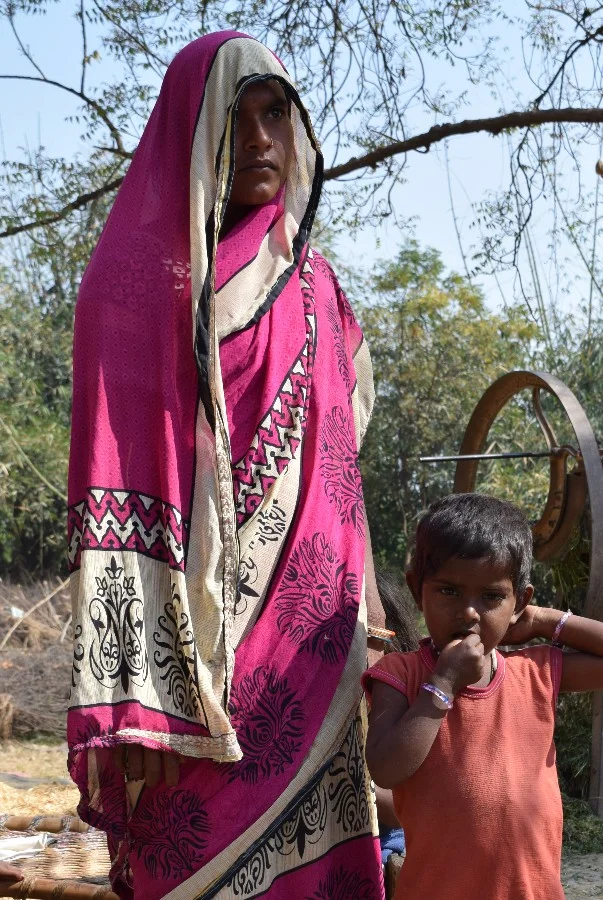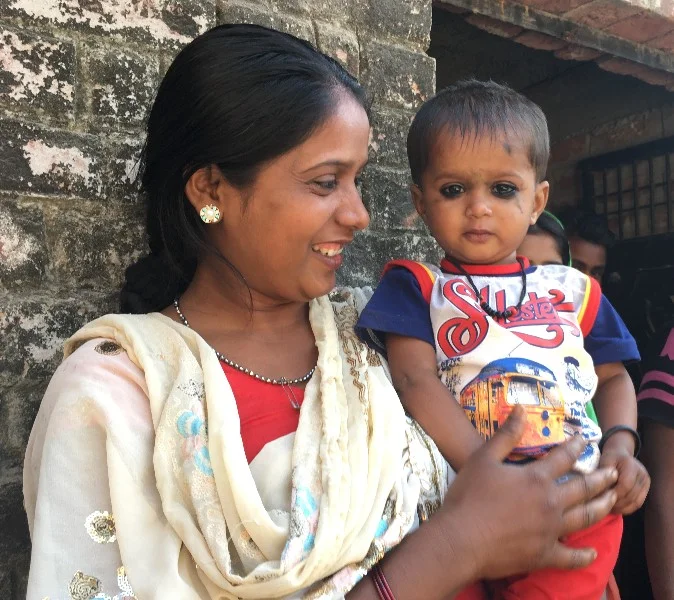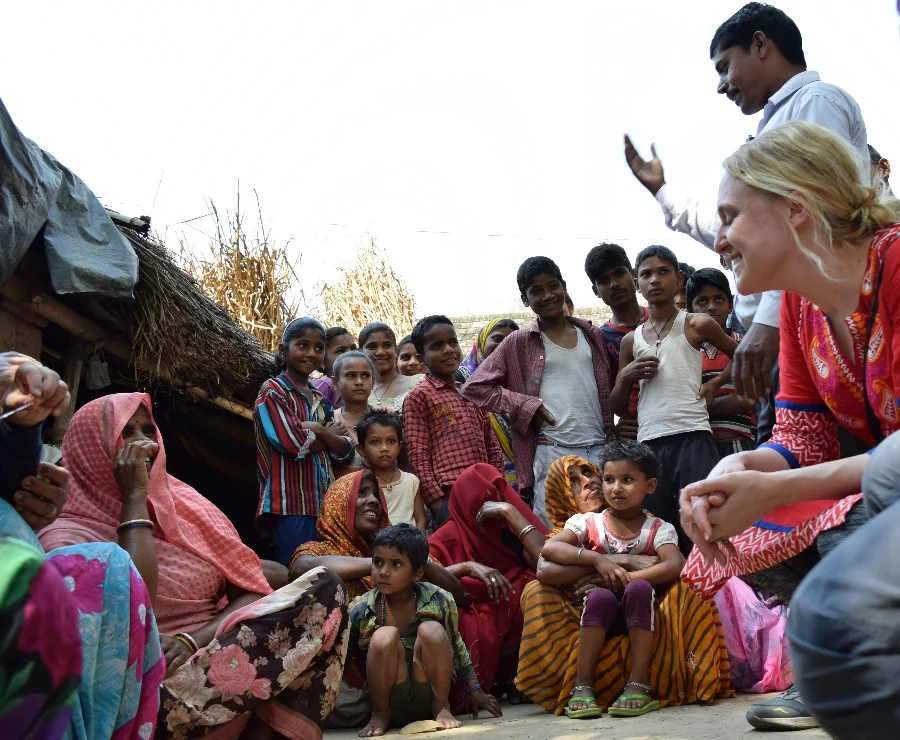Mere Saathi's mission is to provide veterinary care for dairy animals in the poorest Dalit (“Untouchable”) villages near Kachhwa in the state of Uttar Pradesh, India. Our Spring 2018 Project goal was to provide parasite treatment for 300 animals for 100 women in 3 villages.
The measurable outcome was twice what we planned. The intangible results are even greater. We treated 770 cows, buffalo, goats, and sheep owned by more than 200 women in 8 villages. Perhaps more importantly, we connected with the women who care for these animals. We learned their names and heard their stories. And we are partnering with committed women and men of the Kachhwa Outreach Team who will sustain this work until we return to Kachhwa in 2019.
We couldn’t have done it without donors and volunteers like you who support Mere Saathi's work.
With funds provided by donors, we shipped animal medication and treatment tools and supplies to Kachhwa ahead of our arrival in March.
Our Mere Saathi team of volunteers received training in Indian culture, safe animal handling, and treatment methods. Then they generously paid their own way to India. We trained the Kachhwa team and worked with them to treat animals and meet with women in four villages.
Read the full report below. It's a success story which You helped write.
Become a Mere Saathi Village Partner. Find out how.
Meeting and Training the Kachhwa Outreach Team
Our India project last year (Spring 2017) focused on identifying where Mere Saathi could have the greatest impact and move ahead in a sustainable way. We partnered with Helping India Together and connected with their colleague, Dr. Rubel Manivannan, and her Kachhwa Community Outreach Team. The Kachhwa team has years of experience providing health care and social services to families in villages surrounding Kachhwa.
The villages near Kachhwa where we work
On our first day in Kachhwa, we met with the Kachhwa Outreach Team to discuss our complementary vision and missions. We learned more about the Outreach Team's work to provide wells, toilets, and healthcare and domestic skills training in the villages. We discussed the additional benefits of providing care to both animals and families using a holistic OneHealth approach. Since several team members' wives keep dairy animals, they were intimately familiar with the impact that animal parasites have on animal health and milk production. They soon caught the vision of providing more protein for children and extra income to women for education and other basic needs of village families.
Training the Kachhwa Outreach Team to treat dairy animals
Parasites that impact milk production
We taught the Kachhwa Outreach Team about the types of parasites that affect cattle in the villages and the problems they cause. The intestinal parasites we treated include:
Strongyles - Worms that infect the intestines. If left untreated, they multiply rapidly and create a very large volume of worms in the abdomen. This can cause the abdomen to distend dramatically. These worms live off the food that the animals eat, robbing the animal of nutrition. They also steal protein from the body and can cause such low protein levels in the animals' blood that fluid starts to leak from blood vessels and pool in the abdomen.
Haemonchus - Worms that infect the intestines and live by stealing blood from the inside of the animal. This causes a life-threatening anemic condition in the animal.
The external parasites we treated include:
Lice - They carry diseases. Some species cause anemia by sucking blood from the host. They cause skin infections and significant discomfort.
Fleas - At such heavy infections as we have seen in the village animals, fleas cause severe anemia and sometimes death. They carry diseases to other animals as well as to humans.
Ticks – They carry some of the most prevalent and deadly diseases for the animals as well as humans in the villages. These diseases, if not leathal, can still make the animal very sick and weak and unable to produce milk. They can also cause abortions or other conditions that make the animals unable to reproduce.
All of these parasites (except fleas) are passed from mother to offspring. Some parasites and related diseases can also be passed from animals to humans (zoonosis).
Dairy animal conditions in the villages
Parasite treatment benefits and method
We discussed with the Kachhwa Outreach Team how the medication works and how it will benefit the village women. We introduced them to Dectomax, a parasiticide that is applied topically to clean, dry hide. Part of the medicine is absorbed into the blood stream to kill and prevent intestinal parasites. The other portion remains in the oils of the skin to kill and prevent external parasites. Dectomax is safe for pregnant animals and baby animals. It's also safe for humans to consume the milk of animals recently treated with Dectomax.
We also discussed how removing these parasites will benefit communities by preventing zoonotic diseases (transferred from animals to humans). In addition to disease prevention, we estimate that regular treatment will improve milk production by 50% within one year. It will also improve reproductive success and baby survival by improving animal nutrition, because it prevents worms from stealing nutrition from the animals. The animals will be more disease-free and stronger and healthier overall. The Kachhwa Outreach Team was excited to bring this great benefit to their community.
We taught the Outreach Team proper techniques for administering the medication. The first step is to properly measure the animal in order to determine the correct dose. We used a measuring tape which was specifically designed by Mere Saathi with simple color coding, so that it may be used by villagers who are not literate, as well as by the Outreach Team. We demonstrated safety measures like wearing gloves and safe approach and handling of the animals. Finally, we trained them in proper application of medicine on the backs of the animals.
Treating Animals in four villages
The Outreach Team was trained and ready, so we ventured out into one of the poorest Dalit villages, Dwarikapur, to start delivering treatment. The Kachhwa Outreach Team had visited these communities prior to our arrival, so the women who own and care for the dairy animals were expecting us and anxious for their animals to receive the medication. They already knew of its benefits.
The Mere Saathi team stayed together with the Outreach Team on the first day, observing techniques for quality control and troubleshooting any issues that might arise. By our second day of work in the villages, the Outreach Team was fully autonomous and working in two teams to reach the most animals possible.
Some of the large animals were too nervous around strangers. In these cases the Outreach Team would show the women caretakers how to do the measuring and medication application themselves.
Working with women and their animals in the villages, many women treating their own anmals.
Thanks to the motivation, efficiency, and effectiveness of the Kachhwa Outreach Team, we far surpassed our goal of treating 300 animals. We were able to medicate 723 animals total. At an average of three animals per woman/ family, this benefited over 240 women with the prospect of better nutrition for their children and extra income to invest in their education.
Over the week, we treated animals in eight villages rather than three:
Baraini
Barapur
Chhote Lalpal
Dwairkapur
Kachhwa Dih
Kachhwa Pret
Ramapur
Ramesh Kumar Pal
Village women You serve as a Mere Saathi Village Partner
Listening and Looking ahead - Helping 1000 Women in 2019
We surpassed our Spring 2018 Project goal thanks to the incredible support from our Mere Saathi family - those who have donated time and money to this cause. The Kachhwa Outreach Team is now equipped to administer the medication to benefit the same villagers every 6 months for consistent, reliable, life long parasite control.
Within a few weeks of our visit, the Outreach Team began forming and meeting with Women's Focus Groups in the villages were we worked. The startup meetings included about 100 people total in the villages of Kachhwa Dih, Lachhapur, Bareini, Ramapur, and Dwarikapur. The Team sought feedback from the women on the the parasite treatment process. They discussed ways to monitor changes in the condition and behavior of their animals, so that together we can measure project outcomes.
Going forward, our goal is to expand our family of supporters enough to allow for us to reach even more women. Our goal is to begin providing consistent, life-long, bi-annual treatment for animals of 1,000 women by 2020.
We also value your ideas. Please stay in touch.
Listening to women in the villages near Kachhwa


